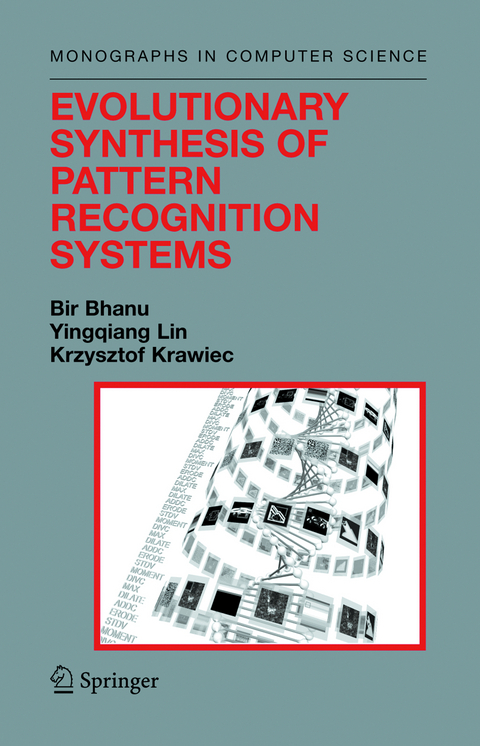
Evolutionary Synthesis of Pattern Recognition Systems
Seiten
2005
Springer-Verlag New York Inc.
978-0-387-21295-1 (ISBN)
Springer-Verlag New York Inc.
978-0-387-21295-1 (ISBN)
Investigates evolutionary computational techniques - such as genetic programming, linear genetic programming, coevolutionary genetic programming and genetic algorithms - to automate the synthesis and analysis of object detection and recognition systems.
Evolutionary computation is becoming increasingly important for computer vision and pattern recognition and provides a systematic way of synthesis and analysis of object detection and recognition systems. Incorporating "learning" into recognition systems will enable these systems to automatically generate new features on the fly and cleverly select a good subset of features according to the type of objects and images to which they are applied.
This unique monograph investigates evolutionary computational techniques--such as genetic programming, linear genetic programming, coevolutionary genetic programming and genetic algorithms--to automate the synthesis and analysis of object detection and recognition systems.
The purpose of incorporating learning into the system design is to avoid the time-consuming process of feature generation and selection and to reduce the cost of building object detection and recognition systems.
Researchers, professionals, engineers, and students working in computer vision, pattern recognition, target recognition, machine learning, evolutionary learning, image processing, knowledge discovery and data mining, cybernetics, robotics, automation and psychology will find this well-developed and organized volume an invaluable resource.
Evolutionary computation is becoming increasingly important for computer vision and pattern recognition and provides a systematic way of synthesis and analysis of object detection and recognition systems. Incorporating "learning" into recognition systems will enable these systems to automatically generate new features on the fly and cleverly select a good subset of features according to the type of objects and images to which they are applied.
This unique monograph investigates evolutionary computational techniques--such as genetic programming, linear genetic programming, coevolutionary genetic programming and genetic algorithms--to automate the synthesis and analysis of object detection and recognition systems.
The purpose of incorporating learning into the system design is to avoid the time-consuming process of feature generation and selection and to reduce the cost of building object detection and recognition systems.
Researchers, professionals, engineers, and students working in computer vision, pattern recognition, target recognition, machine learning, evolutionary learning, image processing, knowledge discovery and data mining, cybernetics, robotics, automation and psychology will find this well-developed and organized volume an invaluable resource.
Feature Synthesis for Object Detection.- Mdl-Based Efficient Genetic Programming for Object Detection.- Feature Selection for Object Detection.- Evolutionary Feature Synthesis for Object Recognition.- Linear Genetic Programming for Object Recognition.- Applications of Linear Genetic Programming for Object Recognition.- Summary and Future Work.
| Reihe/Serie | Monographs in Computer Science |
|---|---|
| Zusatzinfo | 95 Illustrations, black and white; XXIV, 296 p. 95 illus. |
| Verlagsort | New York, NY |
| Sprache | englisch |
| Maße | 155 x 235 mm |
| Themenwelt | Informatik ► Grafik / Design ► Digitale Bildverarbeitung |
| Informatik ► Theorie / Studium ► Künstliche Intelligenz / Robotik | |
| ISBN-10 | 0-387-21295-7 / 0387212957 |
| ISBN-13 | 978-0-387-21295-1 / 9780387212951 |
| Zustand | Neuware |
| Informationen gemäß Produktsicherheitsverordnung (GPSR) | |
| Haben Sie eine Frage zum Produkt? |
Mehr entdecken
aus dem Bereich
aus dem Bereich
alles zum Drucken, Scannen, Modellieren
Buch | Softcover (2024)
Markt + Technik Verlag
CHF 34,90
Modelle für 3D-Druck und CNC entwerfen
Buch | Softcover (2022)
dpunkt (Verlag)
CHF 48,85


